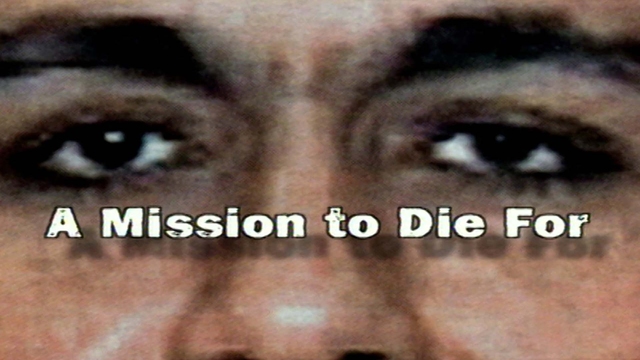Mission to Die For
Mohamed Atta, the mastermind behind the September 11 attacks
 As the world marks twenty years since 9/11 this investigation, we follow the life of Mohamed Atta, the 33-year old suspected ringleader of 19 suicide hijackers whose last act took thousands of innocent lives, and tipped the world into a frightening confrontation between Islam and the West. We seek out from those who knew him best what lay behind his deliberate decision to embark on a mission to die for.
As the world marks twenty years since 9/11 this investigation, we follow the life of Mohamed Atta, the 33-year old suspected ringleader of 19 suicide hijackers whose last act took thousands of innocent lives, and tipped the world into a frightening confrontation between Islam and the West. We seek out from those who knew him best what lay behind his deliberate decision to embark on a mission to die for.
November 2001. In New York City, the army now patrols the streets, guarding the still-smoking ruins of the World Trade Centre towers. Deep in the rubble, thousands of the dead still lie buried, two months after the terrorist attack. Somewhere too lie the remnants of a man described by an old friend as "a very nice person, really, a very delicate person... this is the Mohamed I knew." The Mohammad he knew was Mohamed Atta, the 33 yr old suspected ringleader of 19 suicide hijackers whose last act took thousands of innocent lives, and raised the frightening prospect of future conflict between Islam and the West.
What drove Atta to commit such an act of such abominable evil? Was he insane, or were his motives and ruthless determination rooted somewhere in his background? We go in search on an answer by following Atta's life from his beginnings in a middle class family in a Northern Egyptian village, to his end in the burning north tower of the World Trade Centre.
Our journey begins in Cairo, where the schism between the Middle East and the West is immediately apparent. Anger at the US translates into a blank refusal by Atta's old friends and student colleagues to believe he was involved in September 11. To them its all American propaganda. "The Israelis kill the children of Palestinians every day, every day! What happened in America? Two buildings bombed. What does America do? They want to hit all the world." comments one of Atta's neighbours.
The picture that emerges of Atta from his Cairo days is one of a diligent and moderate scholar which serves only to underline his gradual transformation from 'high performance' student of architecture to destroyer of one of the Western world's greatest buildings. "Mohammad Atta grew up in an environment on the campus at Cairo university, where the Islamic activists really held sway in political organisations. No doubt much of his political maturation occurred during that time", comments Dr Robert Springborg, director of American research Centre in Egypt.
We follow Atta to Hamburg where he lived in Reeperbahn - the prostitute district. "He saw all the licentiousness of the West, and very commonly this experience causes young Muslim men to become much more traditional, much more fundamentalist", observes Springborg. Two of his fellow students in urban planning speak of a highly political young man - who became more overtly religious. "He was not specifically hostile to America but he did resent the cultural and political dominance of the West and the threat posed to Islam."
In the US we trace Atta's last months through he eyes of the people he encountered. Here, the flying school trainee cuts a less ambiguous figure. "He was just an asshole, first class", says a man who knew him there.
"I can see him striding towards me, towards the aircraft and the thing that struck me was that he had a terribly set expression on his face. Totally emotionless, cold eyes", a fellow trainee recalls.
This is a powerful piece of investigative journalism including stories of the people who knew Atta, previously unpublished photos and internal police documents that named him as a suspect less than 24 hours after the September 11 attack.
FULL SYNOPSIS
